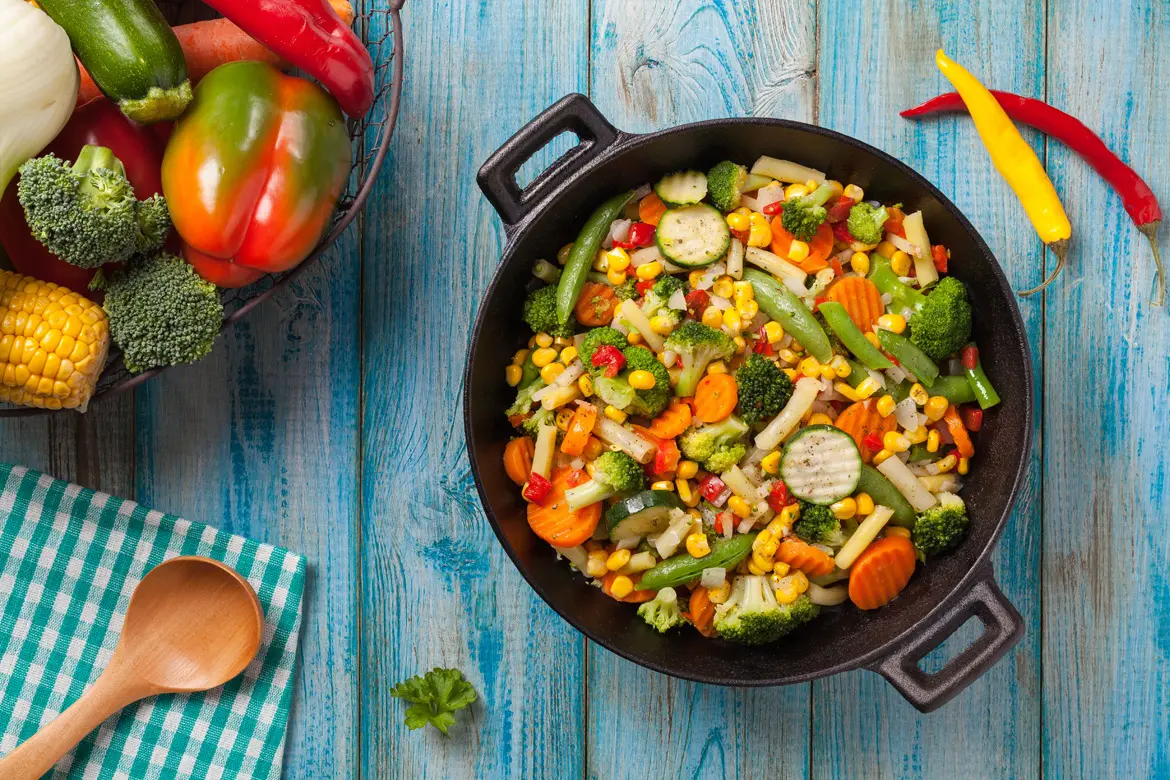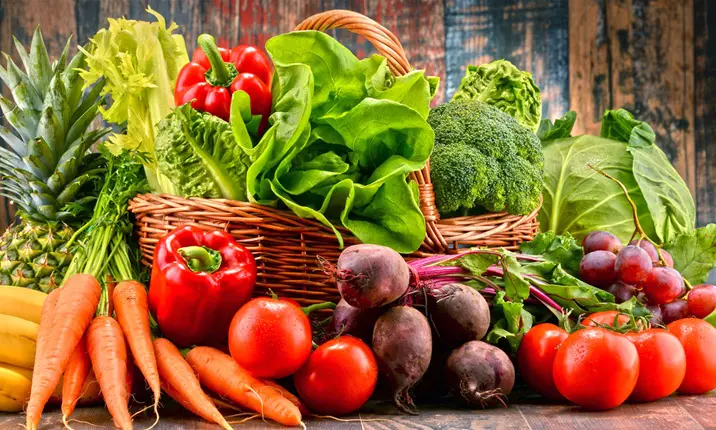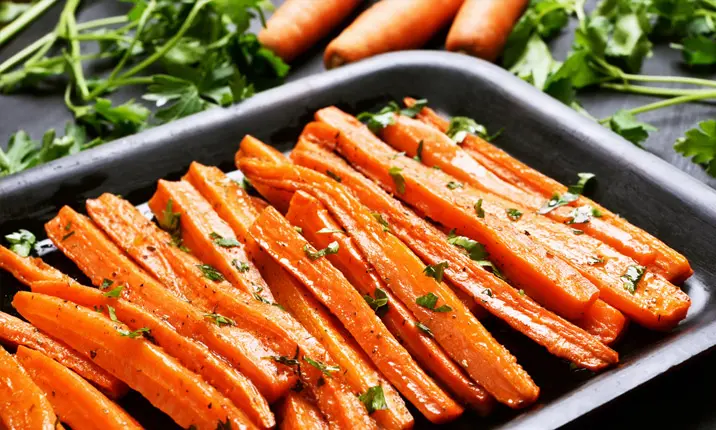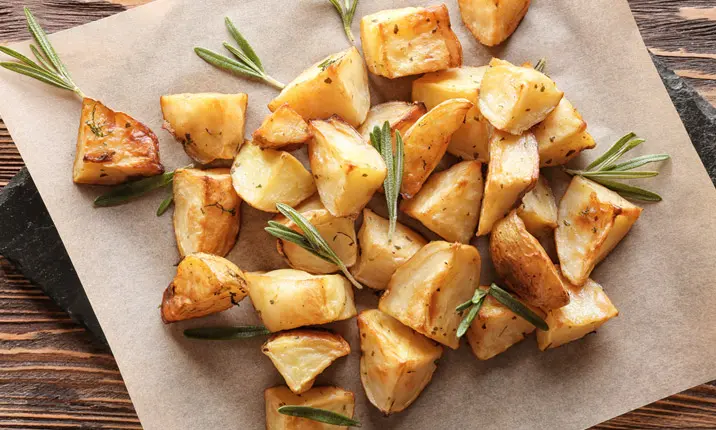-
-
Featured Care Areas


Source: Shutterstock
Are You Eating Your Favourite Vegetable the Right Way?
Last updated: Tuesday, August 20, 2019 | 6 min reading time
Is it true that some vegetables are healthier raw rather than cooked? Our dietitians fill you in on eating your vegetables the right way.
Consuming a variety of vegetables can improve your health. Besides reducing your risk of heart disease, maintaining a healthy weight, easing constipation, or improving your blood pressure and cholesterol levels, phytonutrients found in vegetables have been associated with keeping diseases like stroke, cancers and age-related eye issues at bay.
The pros and cons of consuming cooked vegetables
Cooked vegetables provide your body with antioxidants such as lutein and lycopene, which are good for your eyes, heart and bones. In addition, they are also rich in essential minerals. This is because heating releases bound calcium in food, resulting in more minerals available for your body to absorb.
For example, a cup of cooked spinach contains 245mg of calcium, while raw spinach only has 30mg. Additionally, raw spinach also contain oxalic acid which can interfere with the absorption of nutrients such as calcium and iron. Oxalic acid binds with calcium and iron, making them unavailable for absorption in the body. Heat can break down oxalic acid which will allow the body to absorb higher amounts of vitamins, calcium, iron and fibre.
However, many phytonutrients can get destroyed by the cooking process. In addition, water-soluble vitamins, such as vitamin C and B, can leach out during the cooking process. By cooking vegetables, more than half of their water-soluble vitamins are lost.
The pros and cons of consuming raw vegetables
Most raw food diet supporters will have you believe that the cooking process destroys the natural enzymes in vegetables. However, even if you consumed only raw vegetables, many of those enzymes would denature in the environment of your stomach anyway. Although our bodies create our own digestive enzymes, there is little evidence to support the reason for eating only raw vegetables.
Which is healthier: raw or cooked vegetables?
Research shows that both cooked and raw vegetables have their health benefits. Whether or not you should cook your vegetables depends on the type of vegetables, the nutrients involved and the cooking methods used. It is recommended to have a balance of both raw and cooked vegetables to fully maximise their health benefits.
Vegetables that are healthier when eaten raw:
Red cabbage
Cooking red cabbage can destroy the enzyme myrosinase, which plays a role in preventing cancer. Several recent studies have shown that raw cabbage can offer greater amounts of nutrients than cooked cabbage.
Red bell peppers
Containing close to 3 times the vitamin C you need for the day, red bell peppers are also a powerful antioxidant and a rich source of vitamin A, C, B6, folate and magnesium. Research shows that bell peppers can lose up to 75% of their health properties during the cooking process.
Onions
Raw onions contain high levels of allicin, a phytonutrient that promotes cardiovascular health. Heating onions can neutralise its cardiovascular benefits. Do include both red and yellow onions for a natural dose of quercetin, a bioflavonoid that may help fight off some infections and aid cancer prevention. Also rich in selenium, these nutrients are best obtained when onions are taken raw, or added in right at the end of the cooking process.
Garlic
Like onions, garlic contains the phytonutrient allicin, which can be absorbed in higher amounts when taken raw. Raw garlic contains sulphur compounds with anticarcinogenic effects, which helps to counteract the development of cancer (cooking it destroys these sulphur compounds).
Vegetables that are healthier cooked:
Carrots
Cooked carrots are more nutritious, but you still get plenty of nutrients from raw carrots. Cooking, especially prolonged boiling can reduce its vitamin content but carotenoids, such as the beta-carotene in carrots, are more readily available when cooked.
Tomatoes
Tomatoes certainly have many health benefits when eaten raw. However, by cooking them, it can help increase the body’s absorption of lycopene, an antioxidant and an anti-inflammatory compound that has been linked to a lowered risk of cancer and heart attacks. The Journal of the National Cancer Institute has shown that the consumption of cooked tomatoes can help reduce the risk of prostate cancer.
Mushrooms
Mushrooms can be eaten raw or cooked. However, heating them can help release nutrients such as protein, B vitamins, and minerals, as well as a wide range of antioxidants (one of which is ergothioneine). Additionally, some types of raw mushrooms contain toxic compounds (agaritine and amatoxin) which can be destroyed through cooking.
Potatoes
Potatoes contain anti-nutrients like protein trypsin inhibitor and lectins, which can interfere with your body’s digestion and absorption of nutrients. Avoid the green part of a potato, as it contains solanine, a bitter substance that can cause diarrhoea, fever and vomiting.
Ensuring that potatoes are cooked is of utmost importance as is can help reduce its anti-nutrient content, and make the starch in potatoes digestible because they can only be easily absorbed by the body in a cooked state.
Broccoli
A quick steam can soften broccoli to make it more palatable for consumption. Doing so also retains glucosinolate, a naturally occurring organic compound that contains sulphur, nitrogen and are derived from glucose and amino acid, which some studies suggest may fight cancer and heart disease. The absorption amount of iron in broccoli is only 6% in raw ones compared to 30% in the cooked version.
What is the healthiest way to prepare your vegetables?
Choose cooking methods that reduce the time that vegetables are exposed to heat in order to maintain their nutritional value. Steaming, roasting and a quick stir frying are some of the better cooking methods that retain the most nutrients in vegetables. When boiling vegetables, both water and high heat can result in some nutrient loss. In fact, sometimes stir frying, sautéing or microwaving your vegetables can be more effective in preserving those nutrients than boiling.
The following are tips on how you can prepare your vegetables to minimise nutrient loss:
- Avoid continuous reheating of food. Opt for shorter cooking times
- Choose steaming or cooking in the microwave over boiling
- Cut vegetables into large chunks
- Keep skins on when possible
- Prepare your vegetables just before you need them (cook small batches instead of big portions to ensure they are cooked well. Avoid reheating)
- When you do boil, use only a minimal amount of water and retain the cooking liquid for future use (like soups and stocks)
While some vegetables taste better cooked and others raw, there is no "wrong" way to eat your vegetables. There will be benefits and disadvantages to having your vegetables cooked or raw. What’s more important is preparing them in a way that will help you enjoy eating them.
Always make sure that your vegetables are absolutely clean before eating them raw. If you experience any stomach discomfort, persistent diarrhoea and fever after consumption, get medical help immediately.
Raw or Cooked? How to Get the Most Out of Fruits and Veggies. Retrieved 03/07/2019 from https://www.webmd.com/diet/ss/slideshow-raw-cooked-veggie
Eating Raw Foods. Retrieved 03/07/2019 from https://www.webmd.com/diet/features/eating-raw-foods#1
Raw Food Dangers. Retrieved 03/07/2019 from https://www.webmd.com/food-recipes/food-poisoning/ss/slideshow-raw-food-dangers
Is Raw Food Healthier Than Cooked Food? Retrieved 03/07/2019 from https://www.healthline.com/nutrition/raw-food-vs-cooked-food
The Raw Food Diet: A Beginner's Guide and Review. Retrieved 03/07/2019 from https://www.healthline.com/nutrition/raw-food-diet
Steam-cooking rapidly destroys and reverses onion-induced antiplatelet activity. Retrieved 03/07/2019 from https://www.ncbi.nlm.nih.gov/pmc/articles/PMC3490999/
Nutrition Face-Off: Raw vs. Cooked Spinach. Retrieved 15/08/2019 from https://www.vegetariantimes.com/health-and-nutrition/nutrition-face-off-raw-vs-cooked-spinach
Eating Raw Foods. Retrieved 03/07/2019 from https://www.webmd.com/diet/features/eating-raw-foods#1
Raw Food Dangers. Retrieved 03/07/2019 from https://www.webmd.com/food-recipes/food-poisoning/ss/slideshow-raw-food-dangers
Is Raw Food Healthier Than Cooked Food? Retrieved 03/07/2019 from https://www.healthline.com/nutrition/raw-food-vs-cooked-food
The Raw Food Diet: A Beginner's Guide and Review. Retrieved 03/07/2019 from https://www.healthline.com/nutrition/raw-food-diet
Steam-cooking rapidly destroys and reverses onion-induced antiplatelet activity. Retrieved 03/07/2019 from https://www.ncbi.nlm.nih.gov/pmc/articles/PMC3490999/
Nutrition Face-Off: Raw vs. Cooked Spinach. Retrieved 15/08/2019 from https://www.vegetariantimes.com/health-and-nutrition/nutrition-face-off-raw-vs-cooked-spinach












